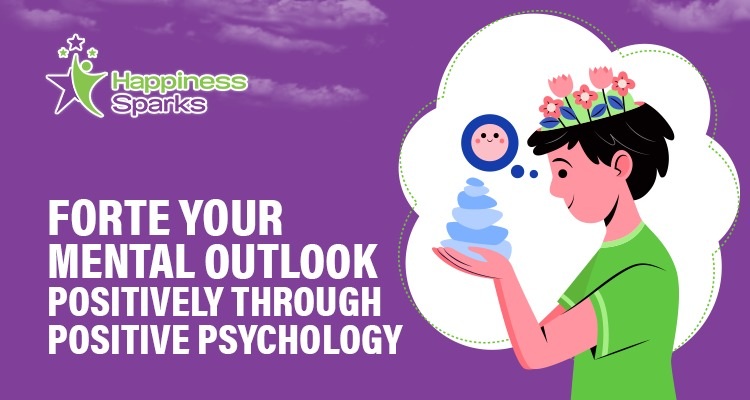
Positive psychology focuses on how to help human beings to live and lead a happy, prosperous and healthy way of life. Most of the other branches of psychology focus on abnormal behaviour and dysfunction. Positive psychology helps people become more optimistic and accept what they are.
Positive psychology is termed as “extend and complement the problem-focused psychology that has been progressing for centuries,” says (Christopher Peterson 2008)
Martin Seligman and Mihaly Csikszentmihalyi say positive psychology will help gain more scientific effective interventions and understanding to build a connection between family members and the community.
What is unrealistic optimism considering positive psychology?
Unrealistic optimism means systematic tendencies to form false and ideological beliefs. Nevertheless, this kind of optimism has substantial advantages since it boosts happiness, promotes physical and mental health, and spurs and supports productivity.
Unrealistic optimism in cognitive states those beliefs which are not realistic and proclaim their optimism to the extent that they are true or false. For instance, if a mental condition has incorrect irrational beliefs, these will be considered wrong or inaccurate irrational beliefs that are useful.
Realistic optimism, on the other hand, is when a person feels they will succeed and puts all their effort into making it happen. Unrealistic optimism, on the other hand, is when a person believes they will succeed but makes no effort, instead having faith that the universe will make it happen.
Positive illusions believe in positive psychology.
Positive illusions define the self, future, and world, which means the systematic tendencies of reality that make things appear better than they are.
Positive illusions are these tendencies either to maintain and adapt external optimistic beliefs about the self or to make external optimistic predictions about the self, where we understand predictions as beliefs about what is likely to happen and what will happen. This belief of positive illusions as thought patterns is primarily shared in and compatible with standard ideas about how positive illusions work in teams of positive psychology.
In cognitive states meant to be illusory, biased or inadequately supported by external factors, for instance, prejudice, self-deception, delusion and superstition, and often positive illusions are described as things people just hope for in the context of physical health and mental health.
The light on the extent to which unrealistic optimism and other positive illusions are false, belief-like, inaccurate, fixed and epistemically irrational. There is no reason to say that optimistically biased cognitive states are beliefs instead of hopes, thoughts, or desires. Optimistically personal predictions and beliefs share the features of other types of forecasts. They are ideas that lead people to act as they would expect if they were genuinely committed to being true.
What positive psychology says about the darker side of self-esteem?
“Self-esteem is an individual value and worth. It can be taken as a measure of how much an individual “values, prizes, appreciates, approves of, or likes himself or herself” (Adler & Stewart, 2004)”.
Darker sides of self-esteem
Low self-esteem can be adaptive in some respects, while both high and low self-esteem has their darker sides. Self-esteem can be thought of in other ways beyond the high-low dynamic. The nasty side of self-esteem exists.
People identified with high self-esteem are more likely to be pompous, arrogant, or occasionally selfish, according to Baumeister, Smart, and Boden (1996). They anticipate getting good feedback from others, so when they do, their ego feels threatened, which drives them to invest personal resources in dealing with the criticism. Neff (2011) noted that pursuing high self-esteem can provide challenges, occasionally be counterproductive, and may entail exaggerating one’s virtues while demeaning others.
High self-esteem scores signify narcissism, characterised by an exaggerated sense of entitlement and a superb perception of one’s abilities, good attributes, and competence. Although different measures of narcissism and healthy self-esteem considerably correlate, they provide varied results. Aggression is predicted by selfishness but not by healthy self-esteem. The critical components of narcissistic personality disorder are a recurrent pattern of grandiosity, a need for admiration, an inflated sense of one’s significance, and a conviction that one is superior, special, or unique.
Exaggerated self-esteem can lead to narcissism and the pursuit of unconditional acceptance, according to specific authors who see narcissism as an extreme type of self-esteem. Narcissists only see their reflections in mirrors and consider themselves the centre of the universe.
Self-determination continuum factors explain positive psychology.
Self-determination is an individual’s ability to make decisions and manage their own life. Being self-determined means that an individual feels in control of thoughts and actions. This can make them feel that others control their life.
“An individual tends to be driven by a need to gain and grow fulfilment and achievement,” says (Edward Deci and Richard Ryan 1985) in their book Self-determination and Intrinsic Motivation in Human behaviour.
Assumptions of Self-Determination
The need for growth drives behaviour. The first assumption of self-determination theory is that an individual is actively directed toward achievement and growth. Gaining mastery and taking in new experiences and challenges are essential for developing self-determination.
Autonomous motivation is essential. Self-determination theory mainly focuses on internal factors and basis. For example, I need to gain independence or knowledge rather than external factors.
Some of the self-determination behaviours are:
- Feel in control
- Motivated by intrinsic factors
- Driven by enjoyment, satisfaction, and interest.
And some of the non-self-determination behaviours are:
- Feel a lack of control
- Motivated by external factors
- Driven by responsibility and obligations
Application of Positive Emotions and theories in positive psychology
The difference between positive and negative emotions and highlighted emotions can direct an individual’s life experience. Broaden and Build Theory is based on the importance of positive emotions, which broadens response and awareness and builds coping and resilience skills.
Broaden and Build Theory explains positive emotions, builds resources and expands experiences.
The benefit of positive emotions in positive psychology are:
- Increase creativity
- Enable a person to see the big picture
- Enhance survival over a long period
- Improve psychological resilience
- Help in increasing coping strategies
Theorists link emotions to action tendencies.
Positive emotions don’t depend on specific actions or tendencies; negative emotions depend on factors or activities.
In positive psychology, the words factor, action, or tendency mean the urge to act in a particular way. With emotions like guilt and anger, an individual could do anything in a state of joy. They might play musical instruments, dance, walk somewhere new, or chat with friends. Positive emotions are linked to free activation that invites aimlessness, experimentation, and willingness to gain whatever opportunities present themselves (Frijda, 1986).
Conclusion
When it comes to positive psychology in adults, the evidence suggests that these beliefs of unrealistic optimism, dark sides of self-esteem and self-determination are ideological delusions which do not constitute positive expectations and outcomes. They also provide features of irrationality and unrealisticness because they seem to be upheld and the use of information that is less than rational beliefs. For instance, people give undefined weight to the knowledge of their tensions and plans, while others take on board desirable information while neglecting undesirable details on positivity.
